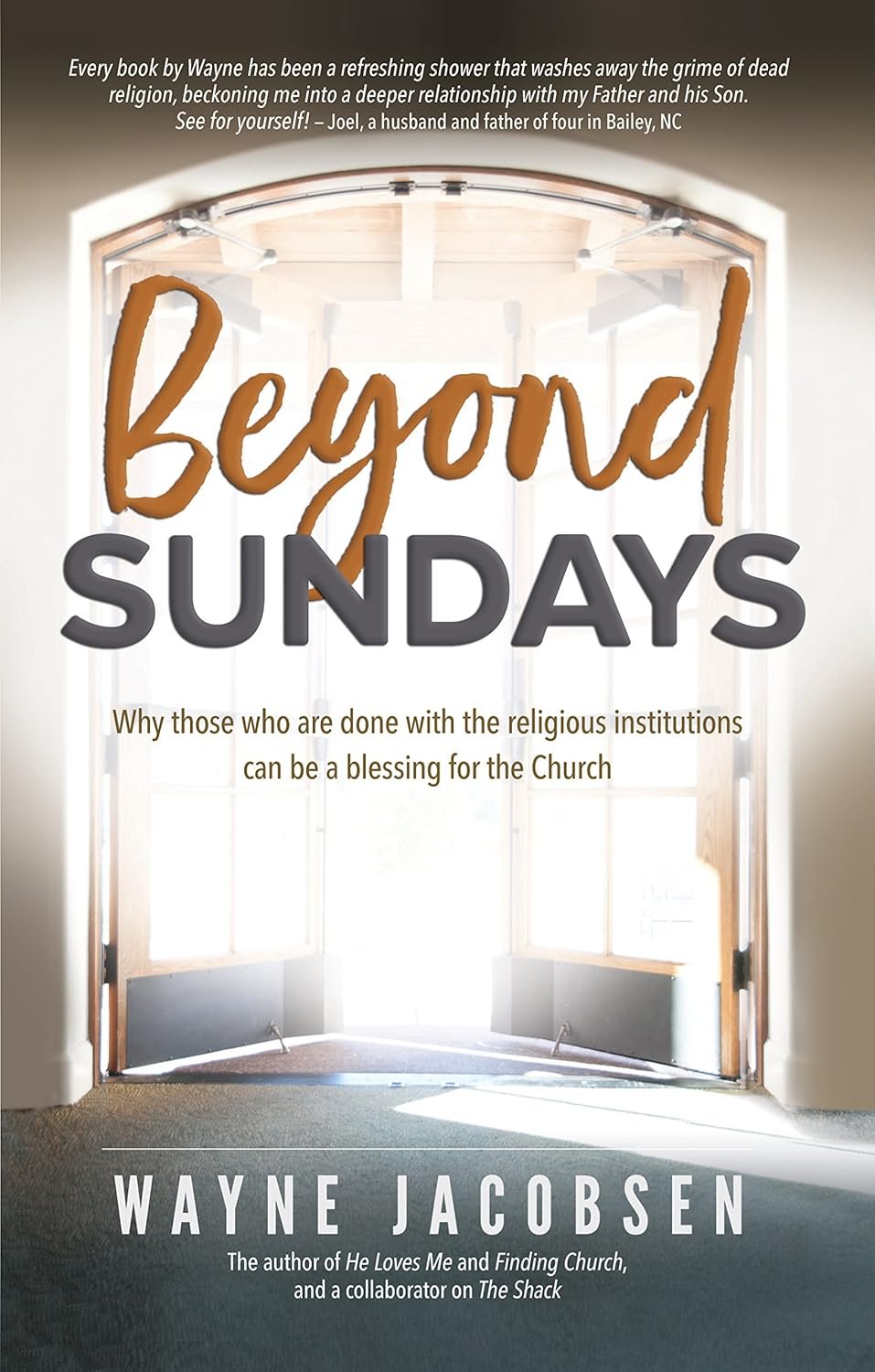PHOTO: Wayne Jacobsen, author and speaker, sharing his message of living loved and building authentic faith communities around the world.
Living Loved And Finding Faith Beyond Boundaries
Wayne Jacobsen discusses spiritual authenticity, breaking away from performance-based religion, and embracing relational faith rooted in love, offering insight into his writing, ministry, and vision for Christian community.
Wayne Jacobsen has long walked a path that leads beyond the boundaries of traditional religion. With wisdom born of experience and a heart tuned to quiet truth, he invites readers to rediscover the essence of a faith grounded not in ritual or performance, but in love. His work, from the profoundly personal He Loves Me to the globally resonant The Shack, speaks with clarity to those who feel displaced within conventional church structures yet still yearn for a vibrant connection with God.
Over the years, Jacobsen has become a trusted voice for those navigating spiritual disillusionment. His writing does not impose—it invites. Whether exploring spiritual seasons in In Season, the nature of authentic community in Finding Church, or addressing deep societal divides in A Language of Healing for a Polarized Nation, he consistently returns to a central theme: the transforming power of divine affection.
In It’s Time, his latest offering, Jacobsen returns to themes of hope, urgency, and readiness—not driven by fear, but by love. Amid growing global uncertainty, he gently points readers back to trust, reminding us that God’s guidance is most clear in seasons of vulnerability. As always, his voice is both prophetic and pastoral, challenging and tender.
Rooted in decades of ministry, family life, and honest struggle, Wayne Jacobsen continues to write not as a distant authority, but as a fellow pilgrim. His is a message that does not seek to build platforms, but bridges—between people, and between people and God.
What inspired you to write It’s Time! and how did your sense of urgency about Jesus’s return shape the message of the book?
This has not been a focus of mine for years, and it has not been accompanied by a sense of urgency. I had grown jaded by all the misapplication of Scriptures about Jesus’s second coming to current events over the years, and how it preyed on fear instead of anticipation and joy. Over the past few years, however, I have witnessed our planet coming unraveled, from growing military conflicts, worldwide polarization, natural disasters, environmental devastation, and the unchecked power of AI. I felt drawn to write about walking with God through difficult times. Setting it in the context of his imminent return and how people can prepare for the days leading up to his arrival with confidence in his love and growing trust in his care made the most sense.
“Living loved instead of performing for God, I began to discover how God transforms from the inside out.” – Wayne Jacobsen
In He Loves Me!, you challenge the performance-based mindset many Christians have—what personal experiences led you to that revelation of God’s unchanging love?
It began with the betrayal of a close friend whom I had invited to be my co-pastor. He announced my resignation one Sunday morning when I was speaking out of town, and I had not offered one. Coming back to claim my rightful place and expose his lies, I felt the Spirit offer me an invitation: “I have more to teach you if you walk away than if you stay.” I had no idea what that meant, but convinced it was him, I followed. What I discovered is that I already had the affection of God I had been trying to earn, and much of my religious efforts were sorely misplaced. That changed the trajectory of my life. Living loved instead of performing for God, I began to discover how God transforms from the inside out.
Finding Church suggests a radical reimagining of Christian community—how has your view of “church” evolved over the decades?
I grew up in a traditional setting where one must be committed to a local institution to validate their faith. I pastored in that setting for twenty years, but kept hitting a brick wall when the priorities of a relationship with Jesus conflicted with the demands of an institutional structure. That structure championed conformity to doctrine and performance over transformation from an intimate connection with the Father’s love. Relationships were based on people pretending to be righteous rather than authentic and vulnerable. To my surprise, I discovered a richer experience of relational community beyond the walls of Christian institutions, and I have spent the last 30 years helping people uncover that reality, whether they attend a traditional congregation or not.
“Faith and community can thrive outside of our religious structures.” – Wayne Jacobsen
What lessons from growing up on a vineyard most deeply shaped your understanding of spiritual seasons in In Season?
Perhaps the most critical lesson is how organic it is. You can’t make cookie-cutter disciples by having them follow the same set of guidelines. Each life and the circumstances they confront are too unique. That’s why all of us must be connected to Jesus so that he can guide us through whatever life throws at us. A vine can’t always bear fruit; much of the year is spent nurturing the environment that will overflow into fruitfulness. Winter, for instance, allows us to slow down and refocus for the next season of fruitfulness. Without it, we’ll burn out under the constant pressure to bear fruit.
How do you personally cultivate authentic relationships in your day-to-day life, especially in a culture that often favours independence and superficial connection?
I am continually building friendships with people in my life, whether they are believers or not. I take an interest in people, and it doesn’t take long to identify those who treasure vulnerability and love over pretense and performance. While I can also love those who are on the performance treadmill, I invest the bulk of my time in relationships that are honest and vulnerable, in struggle as well as joy. That’s where community thrives. We find connection in the presence of love—not when we’re trying to fix people, but when we sit with them as as Jesus makes their path clear.
With so many leaving organised religion, what do you believe is the Spirit’s invitation to believers in this time, as reflected in Beyond Sundays?
My desire in writing that book was to help people see that spiritual life is more than Sunday attendance. Our unity is in Jesus, not what institution we go to or even if we don’t. Jesus prayed that we’d all be one as a testimony to the world of how real he is. Our attempts to contain the life of the church into institutions often fragment people by doctrine or affiliation, each thinking they have found the secret sauce others are missing. Unity doesn’t focus on our differences, but on his presence within us.
In your travels with Lifestream Ministries, what are some of the most surprising ways you’ve seen God work outside traditional church settings?
The greatest miracle to me is that faith and community can thrive outside of our religious structures. I travel inside and outside of institutions and find that organizations often devalue what leadership, generosity, and community were intended to be. What people do from endearment is a hundred times more powerful than how people respond to obligation or loyalty to a man’s vision. People become more dependent on Jesus and love more deeply when they are not trying to conform others to their program.
What advice would you give other authors who want to write about spiritual life with honesty, depth, and without religious clichés?
Be true to his work in you and convey it as authentically as you can. Seek that above personal success, or you’ll compromise your story for the sake of popularity. If you want to be famous or write the next best-seller, you’ll fall into the trap of giving people what they want, rather than being true to his work in you. Be honest about your struggles and failures as well as your joys. Don’t paint a better picture than you experience it; it will only frustrate people who seek what’s real. Invite people to Jesus and help them recognize how he reveals himself to them. That’s the only way they will find fullness in his reality.



